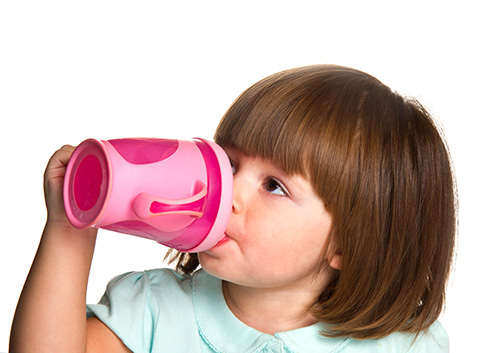September 1st, 2021

Labor Day, celebrated on the first Monday each September here in the United States, is a holiday devoted to the American working community. The purpose of the holiday is honoring the country's workers and their contributions to the strength of our country as a whole.
How Labor Day Started
There is actually some debate as to the origins of Labor Day. It is uncertain whether Peter McGuire, a cofounder for the American Federation of Labor, or Matthew Maguire, who was the secretary of Central Labor Union of New York, had the great idea. However, the Central Labor Union's plans were what launched the first Labor Day in America.
The First Labor Day
The very first Labor Day was celebrated on September 5th, 1882. The Central Labor Union then held annual celebrations on September 5th for what they called a working man's holiday. By the year 1885, the Labor Day celebration had spread to many different industrial areas, and after that it began spreading to all industries in the United States.
Labor Day Today
Labor Day today is a huge United States holiday during which we honor the country's workers with a day of rest and relaxation or a day of picnics and parades. This holiday is truly one to honor the many people who work hard to contribute to the economic well-being of our great country!
Our team at All About Kids Dentistry hopes all of our patients celebrate Labor Day, and every holiday, safely and happily. Whether you stay in the Dallas area, or travel out of town, have fun, and don't forget to brush!
August 25th, 2021

Congratulations! Your child is beginning to leave her bottle behind and has started to use her first sippy cup. And the best training cup is one that makes the transition from bottle to cup an efficient, timely, and healthy one.
The Right Training Cup
While a “no spill” cup seems like the perfect choice for toddler and parent alike, those cups are designed much like baby bottles. The same valve in the no-spill top that keeps the liquid from spilling requires your child to suck rather than sip to get a drink. If your child’s cup has a top with a spout, she will learn to sip from it. Two handles and a weighted base make spills less likely.
When to Use a Training Cup
Children can be introduced to a sippy cup before they are one year old, and we suggest phasing out the bottle between the ages of 12 and 24 months. Use a sippy cup as the source for all liquids at that age, and only when your child is thirsty and at mealtime to avoid overdrinking. The transition from sippy cup to regular cup should be a swift one.
Healthy Sipping Habits
The best first option in a sippy cup between meals is water. Milk or juice should be offered at mealtimes, when saliva production increases and helps neutralize the effects of these drinks on young teeth. And don’t let your child go to sleep with anything other than water—falling asleep with a cup filled with milk, juice, or other sugary drinks means these liquids stay in the mouth overnight. Finally, while a sippy cup is convenient and portable, don’t let your young child walk and sip at the same time to avoid injuries.
When your child comes to our Dallas office for her first visit, please bring any questions you might have about training cups. We would be glad to share ways to make the move from bottle to cup both successful and safe!
August 18th, 2021

If you have been bringing your baby in for regular checkups since that first tooth arrived, you might expect that he or she is already familiar with Dr. Diane Colter and our staff. Often, though, months pass between visits, which is a very long time for a child. How can you make your preschooler’s return visit a happy one? We have some suggestions!
Before Your Visit
- Prepare your child for her visit. Simple explanations are best for a young child. You might tell your daughter that a dentist is a doctor who helps keep her teeth strong and healthy. Let her know a bit about what will happen. Being told, “You will sit in a special chair,” or, “Can you open wide so we can count your teeth?” will give her some idea of what it’s like to visit our office.
- There are many entertaining books for young children about visiting the dentist. Reading some of these to her for a few days before the appointment will let her know what to expect.
- Use playtime to prepare. You might count your daughter’s teeth or let her “play dentist” and brush the teeth of her favorite doll or stuffed animal.
When You Arrive
- Your attitude can be contagious! If you treat a visit to the dentist like any other outing, chances are your child will too. Your calm presence is exactly what your child needs.
- You might want to come a bit early to let your son explore the office. Bring a favorite toy or book to keep him entertained if you need to. A favorite stuffed toy can be a comfort in an unfamiliar place.
- If you are with your child during his checkup, follow our lead. Don’t be concerned if your child seems uncooperative at first or even throws a tantrum—we are used to working with children, and have techniques to make his experience as relaxed and as positive as we possibly can.
We Are Here to Help
We are your partners in your child’s dental care. Call our Dallas office anytime for suggestions about making your child’s visit a comfortable, comforting experience. Our goal is to start your child confidently on the road to a lifetime of empowering dental visits and lasting dental health.
August 11th, 2021

Parents, and even older children, can become concerned about tooth development. Wondering when teeth should erupt, and being concerned when the teeth do not appear on schedule, is common. First, you need to remember that each individual is different. Guidelines are just guidelines, but Dr. Diane Colter and our team at All About Kids Dentistry thought we would pass on this information to help you.
Primary teeth
Children normally have 20 primary or baby teeth. The first two to appear are usually the lower central incisors between six to ten months of age. These fall out between five and seven years of age.
- Two upper central incisors – eight to 12 months
- Two upper lateral incisors – nine to 13 months
- Two upper cuspids or canines – 16 to 22 months
- Two upper first molars – 13 to 19 months
- Two upper second molars – 25 to 33 months
- Two lower lateral incisors – ten to 16 months
- Two lower cuspids or canines – 17 to 23 months
- Two lower first molars – 14 to 18 months
- Two lower second molars – 13 to 31 months
As you can see, all the primary teeth normally have erupted before three years of age, but the timeline can vary by four to six months. Except for the lower central incisors and second molars, upper teeth tend to appear before lower teeth.
Permanent or adult teeth
Adults normally have 32 permanent teeth. However, four of these are wisdom teeth or third molars, which are often removed.
- Two upper central incisors – seven to eight years
- Two upper lateral incisors – eight to nine years
- Two upper cuspids or canines – 11 to 12 years
- Two upper first premolars or bicuspids – ten to 11 years
- Two upper second premolars or bicuspids – ten to 12 years
- Two upper first molars – six to seven years
- Two upper second molars – 12 to 13 years
- Two upper third molars or wisdom teeth – 17 to 21 years
- Two lower central incisors – six to seven years
- Two lower lateral incisors – seven to eight years
- Two lower cuspids or canines – nine to ten years
- Two lower first premolars or bicuspids – ten to 12 years
- Two lower second premolars or bicuspids – 11 to 12 years
- Two lower first molars – six to seven years
- Two lower second molars – 11 to 13 years
- Two lower third molars or wisdom teeth – 17 to 21 years
Please discuss any of your dental concerns during your visit with Dr. Diane Colter. If there is a problem with tooth development, the earlier we address it, the better the outcome. We specialize in pediatric dentistry and look forward to helping you and your child with all your dental needs. To learn more about tooth eruption, or to schedule an appointment with Dr. Diane Colter, please give us a call at our convenient Dallas office!


 (972) 233-4439
(972) 233-4439 Dallas
Dallas Schedule Now
Schedule Now





 Website Powered by Sesame 24-7™
Website Powered by Sesame 24-7™